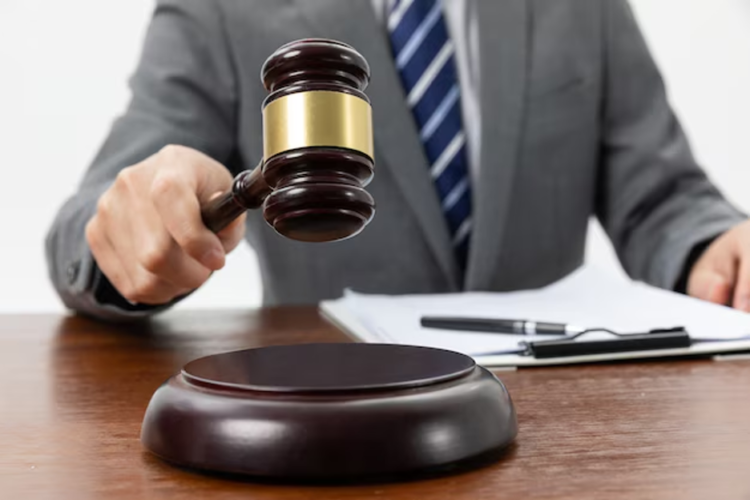Have you ever wondered what happens when someone is “canceled” online?
Or how people, especially public figures, can respond when something untrue about them goes viral?
A lot of people are curious about how cancel culture and the law work together. The good news is that there are positive and empowering ways to understand and navigate this space.
So let’s explore how cancel culture meets defamation law, where the boundaries are, and how the law can be a helpful tool in protecting one’s good name online.
What Is Cancel Culture?
Cancel culture is a term that’s been floating around social media for a while now. It usually refers to situations where a person, often a public figure or influencer, is called out for something they said or did, and as a result, people stop supporting them.
Sometimes, it leads to open conversation; other times, it results in public pushback. But it’s not always a negative thing it can also create space for reflection, dialogue, and learning.
For public figures and everyday people alike, this online attention can lead to big shifts in how they’re seen. And when the information that goes viral is true, cancel culture can simply reflect the natural consequences of public discourse. But when untrue information spreads, this is where the law steps in to offer a framework that supports fairness and truth.
What Is Defamation?
Let’s break it down in the simplest way. Defamation is when someone says or writes something about another person that harms their reputation, and that information turns out to be false.
There are two types: libel (written) and slander (spoken). In many cases, defamation law is not about punishing anyone. It’s about giving people a chance to correct misinformation and protect their good name.
What’s great about defamation law is that it supports open communication while also encouraging accountability. The law doesn’t stop people from expressing opinions; it simply creates a balance where opinions and facts are treated differently.
If someone expresses a personal view respectfully, that’s perfectly fine. But if false statements are made as if they are facts, defamation law offers a legal way to clarify the truth.
How Defamation Law Can Help in Cancel Culture Moments
When someone is facing cancel culture due to false claims, defamation law can be a useful path to resolution. It gives people a way to address situations constructively by:
- Encouraging accurate and fair reporting of information
- Providing an opportunity to request a correction or clarification
- Offering a way to restore reputation through proper legal channels
In these cases, the focus is not on retaliation but on reconciliation and resolution. For example, when someone in the public eye believes that a false story has affected their reputation, they may reach out to the publisher with a friendly request for correction. Many times, this can lead to thoughtful updates, new conversations, and a clearer understanding between the person and the public.
Is It Hard to Prove Defamation?
This is a common question, and it’s fair to ask. While proving defamation involves some steps, the process is based on clear principles. The person bringing a claim typically needs to show that:
- A false statement was made.
- That statement was shared with others.
Importantly, the law also protects freedom of speech, especially when it comes to opinions. So, simply disagreeing or expressing a critical view isn’t considered defamation. What matters is the intention, accuracy, and impact of the statements made.
For public figures, the bar is a bit higher. They often need to show that the false statement was made with “actual malice,” which means that the person who shared it knew it wasn’t true or didn’t check the facts carefully. This helps ensure that free expression is preserved while also protecting people from intentional harm.
How Celebrities and Influencers Handle Online Reputation Positively
Many celebrities and influencers today are using smart, positive strategies to protect and enhance their reputations online. They work with legal teams not just to react to bad press but to build systems that support ongoing transparency and trust.
These strategies might include:
- Creating clear public statements when misinformation spreads.
- Engaging respectfully with their audiences to clarify misunderstandings.
- Using platforms to share their side of the story.
- Working with legal advisors to send polite correction requests to media outlets.
In addition to legal guidance, many public figures also turn to professional services that specialize in online reputation management for celebrities. These services offer tools and techniques that help maintain a positive digital footprint, manage search engine results, and respond effectively to online content. When used proactively, they support a well-rounded approach to reputation that aligns with the celebrity’s values and public presence.
In many cases, these approaches lead to open dialogue, mutual understanding, and even stronger relationships with fans and followers. What’s refreshing is that the goal isn’t about erasing criticism but rather ensuring that everyone has access to accurate and fair information.
The Role of Social Media Platforms
Social media platforms also play a positive role here. Many of them have policies in place that allow users to report false content or request reviews. Some even have formal channels for handling claims related to defamation or impersonation.
By offering tools for users to manage their online presence, platforms contribute to a healthier, more respectful online environment. While they don’t replace legal action, these tools often help people address concerns quickly and with minimal conflict.
A Supportive Legal Framework for a Connected World
One of the best things about how the law works in the digital world is that it keeps growing and adapting. Courts, lawmakers, and legal professionals continue to explore how to support fairness in online communication. This means that the tools available for protecting reputation are evolving in a way that promotes clarity and trust.
Rather than discouraging public conversations, defamation law encourages careful communication and thoughtful responses. It’s not about stopping people from speaking; it’s about making sure that when people speak, they do so in a way that respects others.
Final Thoughts
So where’s the line between cancel culture and defamation? The line comes down to fairness and truth. Cancel culture can open up important discussions, and defamation law helps ensure those conversations are rooted in facts. When both sides are handled with care, the result can be a better-informed public and more respectful digital spaces.
At the end of the day, the goal isn’t to avoid all criticism or disagreement—it’s to make sure everyone is treated fairly. And with the support of strong legal tools, honest dialogue, and respectful online communities, that goal is more than possible it’s something we can build together.










